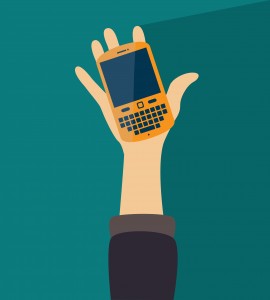In a decision significant for employers with Bring Your Own Device (“BYOD”) policies, a California Court of Appeal held in Cochran v. Schwan’s Home Service that employees who must use personal cell phones for work are entitled to reimbursement for “some reasonable percentage” of the personal cell phone bill, irrespective of whether they have incurred additional charges for the work use, whether a third party has paid the bill, or whether the employee has changed plans to accommodate work-related cell phone usage.
If this case remains standing as a published opinion stating California law (we understand the employer is giving serious consideration to appealing this decision), employers will want to evaluate their BYOD and expense-reimbursement policies for compliance. This new ruling may cause employers to reconsider plans that call for a flat level of reimbursement regardless of the level of usage of the phone and that provide no mechanism for employees to request additional reimbursement.
The Facts
The plaintiff, Colin Cochran, filed a class action alleging that his employer, Schwan’s Home Service, Inc., failed to reimburse customer service managers for expenses pertaining to the work-related use of their personal cell phones. Cochran sought damages for violation of California Labor Code Section 2802 (requiring employers to indemnify employees for all “necessary expenditures” incurred in carrying out their job duties).
The trial court denied Cochran’s motion for class certification because he failed to demonstrate commonality and superiority. The trial court noted that individual inquiries predominated because class members would need to be individually examined as to (1) whether they had unlimited plans for which they did not actually incur any additional expense when they used their cell phone (2) whether cell phone charges were paid for by them or by a third party, and (3) whether they purchased a different cell phone plan because of their work-related cell phone usage. The need to make these inquiries for 1500 class members made any class action unmanageable.
The Appellate Court Decision
The Court of Appeal reversed the trial court’s denial of class certification, reasoning that the trial court had made erroneous legal assumptions about Section 2802. According to the Court of Appeal, the trial court mistakenly assumed that (1) an employee does not incur any expenses if the cell phone charges are paid by a third person or if the employee did not purchase a different cell phone plan because of work-related cell phone usage, and (2) liability could not be determined without examining the specifics of each class member’s cell phone plan.
The Court of Appeal determined that the details of a cell phone plan do not factor into the liability analysis. Rather, when any cell phone use is mandatory, an employer must always reimburse an employee for “some reasonable percentage” of the personal cell phone bill, irrespective of whether the bill is paid by a third party or whether the employee changed plans to accommodate work-related cell phone usage.
What Cochran Means For Employers
With the proliferation of dual-use devices and BYOD policies, the extent to which employees should be reimbursed for work-related use of their personal cell phone or smart phone is an issue that this new Court of Appeal decision makes even more complicated. Because each employee’s level of usage for work purposes and personal cell phone plan may vary, employers face challenges and potential legal pitfalls if they do not carefully design and implement their BYOD policies and procedures. Consult with the author or your favorite Seyfarth attorney for more guidance in this area.
